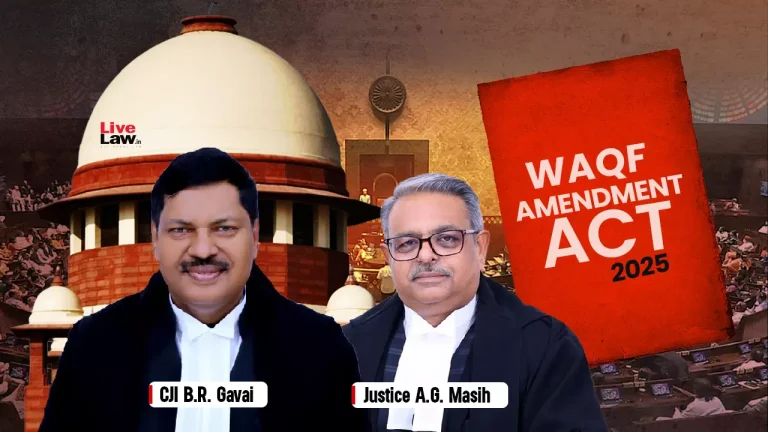New Delhi, May 22:
The Supreme Court of India on Thursday reserved its order on petitions challenging the constitutional validity of the Waqf (Amendment) Act, with a key focus on whether waqf is an essential part of Islam or simply a form of religious charity.
Senior advocate Kapil Sibal, representing the petitioners, strongly argued that waqf is a “dedication to God for spiritual benefit and the afterlife” and therefore an essential Islamic practice. “Unlike other religions, waqf is charity to God and meant for the afterlife,” he told the bench.
This came a day after the government contended that while waqf has Islamic roots, it is not an essential religious practice, and thus not protected as a fundamental right under Article 25 of the Constitution.
SC Bench Highlights Universality of Charity Across Religions
Responding to the arguments, Chief Justice BR Gavai noted that charity exists in all religions. “In Hinduism, the idea of moksha includes charity… it is not unique to Islam,” he said. Justice Augustine George Masih added that similar concepts exist in Christianity: “We are all trying to get into heaven.”
Despite these observations, the petitioners stood firm, arguing that the government cannot unilaterally decide what constitutes an essential religious practice. “No outside authority has the right to determine this,” said Sibal.
Why It Matters
The core of the case lies in whether the Waqf Act interferes with Islamic religious freedoms. If the court finds waqf to be essential to the religion, the law could be struck down for violating fundamental rights. Conversely, if it’s deemed a charitable or administrative act, the government could have broader power to regulate it.
The court has reserved its verdict on granting an interim stay on the Waqf (Amendment) Act. Further hearings will determine the law’s future.


